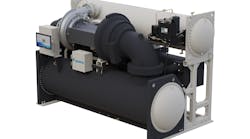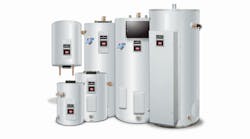Meister Consultants Group Inc., an international consulting firm focused on sustainability, recently released a report identifying 11 states with the greatest potential to expand corporate access to advanced energy.
The report, “Opportunities to Increase Corporate Access to Advanced Energy: A National Brief,” prepared for Advanced Energy Economy Institute (AEEI), explains that, for many companies, the ability to control energy costs and sources is a key factor in decisions concerning where to locate or expand operations. It outlines six policies that would enable companies to purchase advanced energy and considers where each of the policies has the greatest potential to expand corporate access to advanced energy.
Assessing regulatory and policy environment and corporate-purchase and renewable-energy potential, the report identifies 11 states with a strong corporate presence in which one or more of the policies has the potential to create new opportunities for corporate competitiveness.
“Providing opportunities for companies to access advanced energy is a win-win for states,” Graham Richard, chief executive officer of Advanced Energy Economy, a national business organization with which AEEI is affiliated, said. “Adopting policies like those outlined in this report signal to companies that the state is open for business. That will unleash private investment in new energy infrastructure and drive economic growth in the state.”
Three of the policies enable companies to purchase electricity from large-scale off-site advanced-energy projects:
- Utility renewable-energy tariffs, through which companies can purchase renewable energy competitively sourced by their utility.
- “Back-to-back” utility PPAs, whereby the utility acts as an intermediary between a customer and renewable-energy developer.
- Direct-access tariffs, which allow certain customers in traditionally regulated markets to choose their electricity source.
These policies open up purchasing options generally not available to companies located in vertically integrated states.
The three remaining policies allow companies access to energy from distributed-energy resources:
- Raising system-size limits for programs that credit distributed generation, such as net metering.
- Allowing third-party ownership of on-site generation systems.
- Allowing virtual or aggregated metering to enable companies to benefit from distributed energy even when their needs are not met by a single on-site system at a single building.
While most states around the country currently have policies in place that support on-site or distributed advanced energy, not all of them are structured to enable the participation of larger corporate users.
Click through this gallery to see which 11 states made the top 5 list for one or more of the policies.
To download the report, click here.









